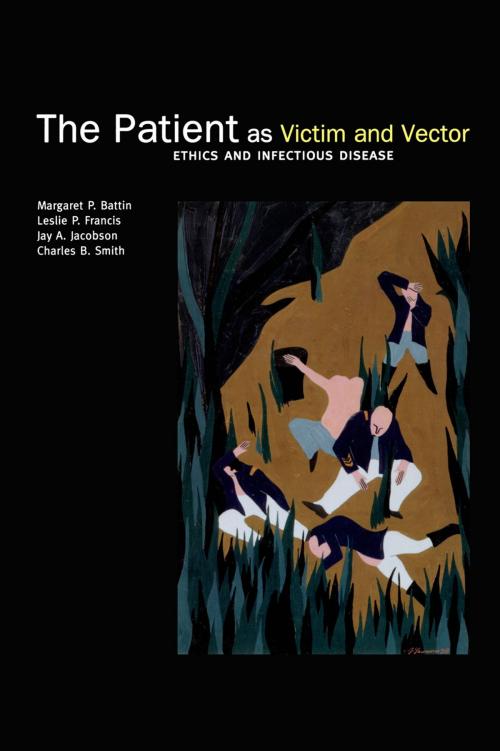The Patient as Victim and Vector: Ethics and Infectious Disease
Nonfiction, Health & Well Being, Medical, Ailments & Diseases, Infectious Diseases, General, Reference, Ethics| Author: | Margaret P Battin, Leslie P Francis, Jay A Jacobson, Charles B Smith | ISBN: | 9780190450595 |
| Publisher: | Oxford University Press | Publication: | October 31, 2008 |
| Imprint: | Oxford University Press | Language: | English |
| Author: | Margaret P Battin, Leslie P Francis, Jay A Jacobson, Charles B Smith |
| ISBN: | 9780190450595 |
| Publisher: | Oxford University Press |
| Publication: | October 31, 2008 |
| Imprint: | Oxford University Press |
| Language: | English |
Bioethics emerged at a time when infectious diseases were not a major concern. Thus bioethics never had to develop a normative framework sensitive to situations of disease transmission. The Patient as Victim and Vector explores how traditional and new issues in clinical medicine, research, public health, and health policy might look different in infectious disease were treated as central. The authors argue that both practice and policy must recognize that a patient with a communicable infectious disease is not only a victim of that disease, but also a potential vector- someone who may transmit an illness that will sicken or kill others. Bioethics has failed to see one part of this duality, they document, and public health the other: that the patient is both victim and vector at one and the same time. The Patient as Victim and Vector is jointly written by four authors at the University of Utah with expertise in bioethics, health law, and both clinical practice and public health policy concerning infectious disease. Part I shows how the patient-centered ethic that was developed by bioethics- especially the concept of autonomy- needs to change in the context of public health, and Part II develops a normative theory for doing so. Part III examines traditional and new issues involving infectious disease: the ethics of quarantine and isolation, research, disease screening, rapid testing, antibiotic use, and immunization, in contexts like multi-drug-resistant tuberculosis, syphilis, hepatitis, HIV/AIDS, and HPV. Part IV, beginning with a controversial thought experiment, considers constraint in the control of infectious disease, include pandemics, and Part V 'thinks big' about the global scope of infectious disease and efforts to prevent, treat, or eradicate it. This volume should have a major impact in the fields of bioethics and public health ethics. It will also interest philosophers, lawyers, health law experts, physicians, and policy makers, as well as those concerned with global health.
Bioethics emerged at a time when infectious diseases were not a major concern. Thus bioethics never had to develop a normative framework sensitive to situations of disease transmission. The Patient as Victim and Vector explores how traditional and new issues in clinical medicine, research, public health, and health policy might look different in infectious disease were treated as central. The authors argue that both practice and policy must recognize that a patient with a communicable infectious disease is not only a victim of that disease, but also a potential vector- someone who may transmit an illness that will sicken or kill others. Bioethics has failed to see one part of this duality, they document, and public health the other: that the patient is both victim and vector at one and the same time. The Patient as Victim and Vector is jointly written by four authors at the University of Utah with expertise in bioethics, health law, and both clinical practice and public health policy concerning infectious disease. Part I shows how the patient-centered ethic that was developed by bioethics- especially the concept of autonomy- needs to change in the context of public health, and Part II develops a normative theory for doing so. Part III examines traditional and new issues involving infectious disease: the ethics of quarantine and isolation, research, disease screening, rapid testing, antibiotic use, and immunization, in contexts like multi-drug-resistant tuberculosis, syphilis, hepatitis, HIV/AIDS, and HPV. Part IV, beginning with a controversial thought experiment, considers constraint in the control of infectious disease, include pandemics, and Part V 'thinks big' about the global scope of infectious disease and efforts to prevent, treat, or eradicate it. This volume should have a major impact in the fields of bioethics and public health ethics. It will also interest philosophers, lawyers, health law experts, physicians, and policy makers, as well as those concerned with global health.















